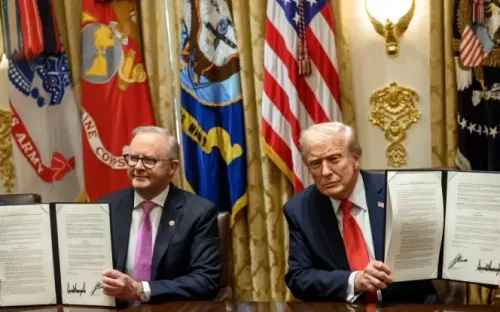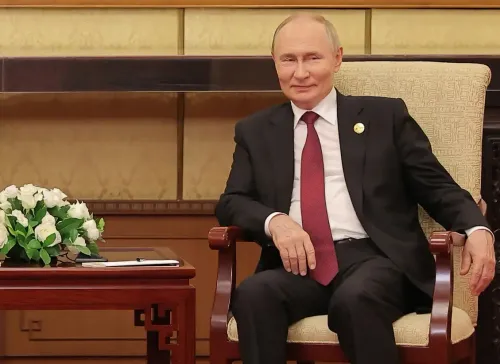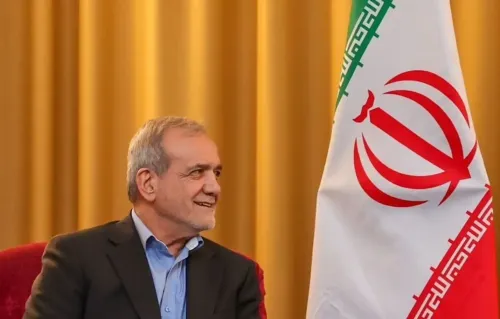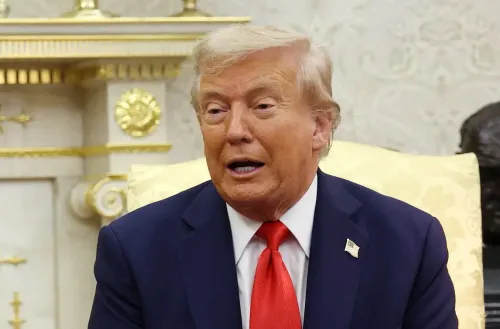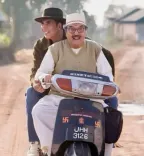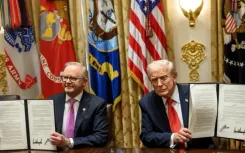What Was the Significance of PM Modi's 21-Gun Salute in Namibia?
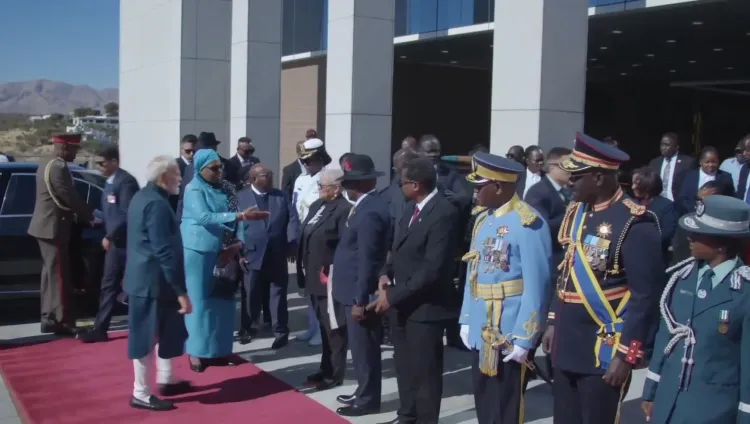
Synopsis
Key Takeaways
- PM Modi received a 21-gun salute during his historic visit.
- The visit underscores the strong diplomatic ties between India and Namibia.
- Cultural appreciation was highlighted through local music and dance.
- Discussions were held on enhancing cooperation in various sectors.
- India's support for Namibia dates back to before its independence.
Windhoek, July 9 (NationPress) Prime Minister Narendra Modi received an extraordinary ceremonial welcome, complete with a 21-gun salute, as he commenced his official activities during a one-day visit to Namibia. The President of Namibia, Netumbo Nandi-Ndaitwah, who took office in March this year, welcomed PM Modi ahead of their private discussions and delegation-level talks.
Earlier in the day, PM Modi touched down in Namibia, marking the last leg of his five-nation tour. He was warmly greeted at Hosea Kutako International Airport by Namibia's Minister of International Relations and Cooperation, Selma Ashipala-Musavyi.
During the reception, local musicians and dancers performed, and in a heartwarming moment, the Prime Minister participated by playing Namibian drums, showcasing his appreciation for local customs.
This visit marks PM Modi's first trip to Namibia and only the third visit by an Indian Prime Minister in the last 27 years.
Additionally, PM Modi paid tribute to Dr. Sam Nujoma, the founding President of Namibia.
Upon arrival, PM Modi expressed his excitement on X, stating, "Landed in Windhoek a short while ago. Namibia is a valued and trusted African partner with whom we aim to enhance bilateral cooperation."
Following discussions aimed at strengthening cooperation across various sectors—including energy, healthcare, education, digital technology, and developmental support—PM Modi is set to address a Joint Session of the Namibian Parliament, marking a pivotal moment in India-Namibia diplomatic relations.
India and Namibia have maintained a robust relationship over the years; New Delhi recognized Namibia even before its independence and supported its cause at the UNGA in 1946.
The bilateral trade primarily involves mineral resources such as zinc and diamond processing. Namibia is rich in natural resources, including uranium, copper, cobalt, rare earths, lithium, graphite, and tantalum, all of which are of significant interest to India.
India has also relocated a few Cheetahs from Namibia to Kuno National Park.
Importantly, during this visit, advancements in Unified Payment Interoperability will be pursued, following the technology agreement between the Central Bank of Namibia and the NPCI.
In recent times, Namibia has discovered new oil fields, leading to potential partnerships in hydrocarbons. Namibia is eager to collaborate on agriculture and pharmaceuticals, exploring India's low-cost solutions like DPI, Janaushadhi, traditional medicine, and Ayurveda, according to Dammu Ravi, Secretary (ER) at the Ministry of External Affairs (MEA) prior to the visit.

